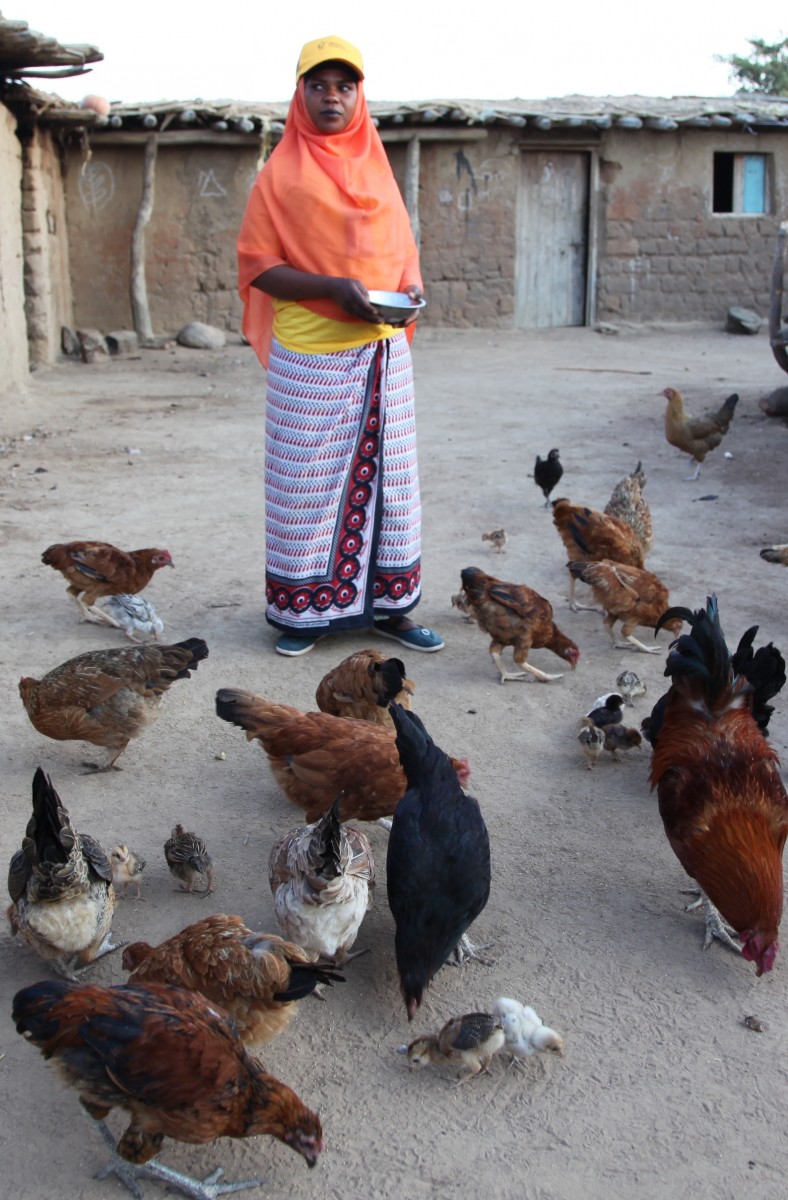Improving research on better nutritional quality and diversity of crops and diets, improving food safety, reducing postharvest waste and value-adding technologies to food after harvest.
This is a response to unacceptably high levels of stunting in children under 5 years old as well as changing dietary patterns due to urbanisation and a growing middle income sector. It will contribute to the under-researched area of the nexus between agriculture, nutrition and health.

Outcomes:
Program 3 aims to improve nutrition and diversity in diets and increase income in target countries, through:
- increased access to quality food
- improved efficiency of production and marketing of nutritious foods (e.g. vegetables)
- reduced postharvest loss
- improved food-safety systems
- more availability of value-added foods.
Activities in this program:
Current research in this program includes a project that is looking at options for improving nutrition and income by enhancing vegetable-based farming and food systems in peri-urban areas. The project is focused on existing and new vegetable farmers, particularly women and youth. It is developing appropriate capacity-building interventions as well as effective technological interventions (addressing integrated crop production, postharvest, food safety and value chains). Research is occurring in Ethiopia, Malawi, Mozambique and Tanzania. Read more about this project.
The second project will strengthen food security through family poultry and crop integration. It is investigating linkages between family poultry and crop value chains and their potential to improve household nutritional status and the socioeconomic, biological efficiency and social equity of both operations. It will explore whether poultry production and trade can be increased by better linking the system to input and output providers that support existing cropping systems. This research will also consider whether increased production and trade contribute to ecologically sustainable agriculture, sanitary food and improved human health. The project is active in Tanzania and Zambia. Read more about this project.
In September 2012 the AIFSC co-hosted a workshop with ILRI in Kenya, gathering experts in nutrition and agriculture from over nine east and southern African countries to ask the question, ‘where can we have the most impact?’. This report was prepared for the workshop AIFSC Nutrition report pdf (File size 3.38 MB) or Word (File size: 2.3 MB) and the report detailing workshop outcomes is Food Nutrition in Eastern and Southern Africa pdf (File size: 1.3 MB) or Word (File size: 4.2 MB). Presentations from the workshop are available here.
Presentations from the September 2012 Nutrition AIFSC-ILRI workshop in Nairobi:
- Mellissa Wood (AIFSC) - Opening Workshop
- Jan Low (CIP) - Delivering Nutrition through Orange-Fleshed Sweet Potato: The Growing Evidence Base
- Amanda Wyatt (IFPRI) - Dairy Intensification in Kenya and Young Child Nutrition
- Chris Auricht (AIFSC consultant) - Overview of Population Nutrition in Eastern and Southern Africa
- Chris Auricht (AIFSC consultant) - Agriculture Productivity Drivers
- Bruce Cogill (Bioversity) - Drivers of Undernutrition
- Tom Randolph (ILRI) - Value Chain Drivers of Nutrition
- Delia Grace (ILRI) - Safe Food, Fair Food, Sufficient Food
- John McDermott (IFPRI) - Overview of Agriculture-Nutrition Research in Low and Middle Income Countries
- Bruce Cogill (Bioversity) - Nutrition and Marketing Diversity Programme
- Mateete Bekunda (Africa Rising) - Africa Rising Current Activities
- Robyn Alders (University of Sydney) - Strengthening Food Security through Family Poultry and Crop Integration in Eastern and Southern Africa
